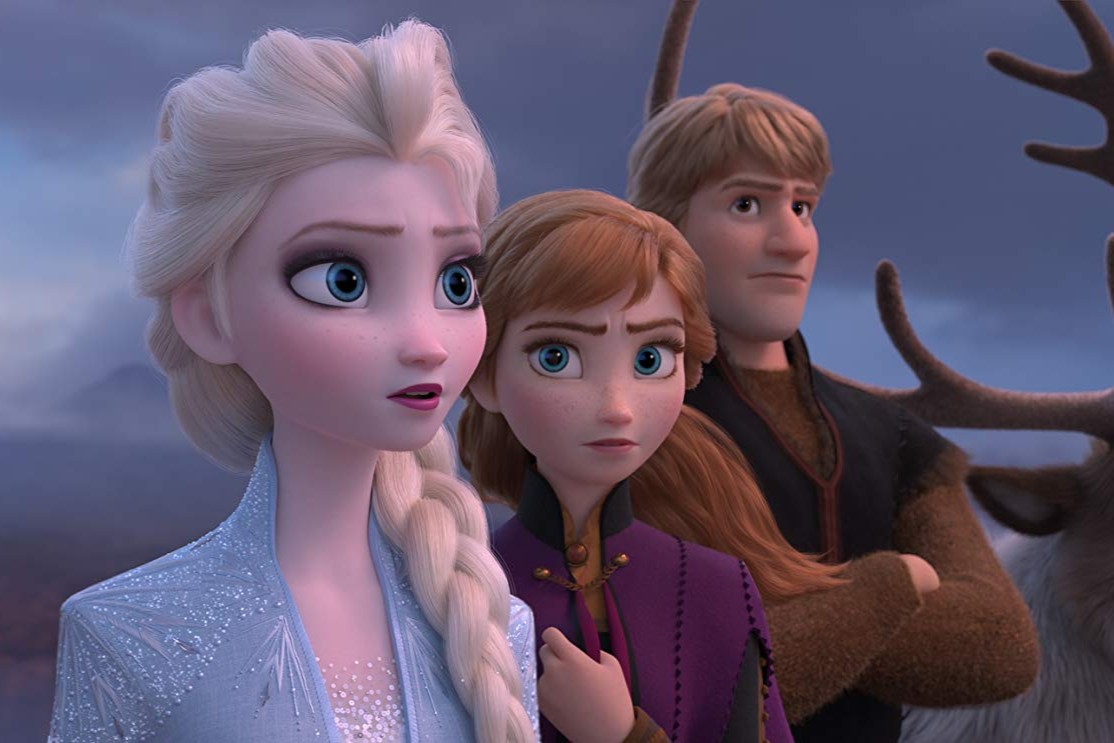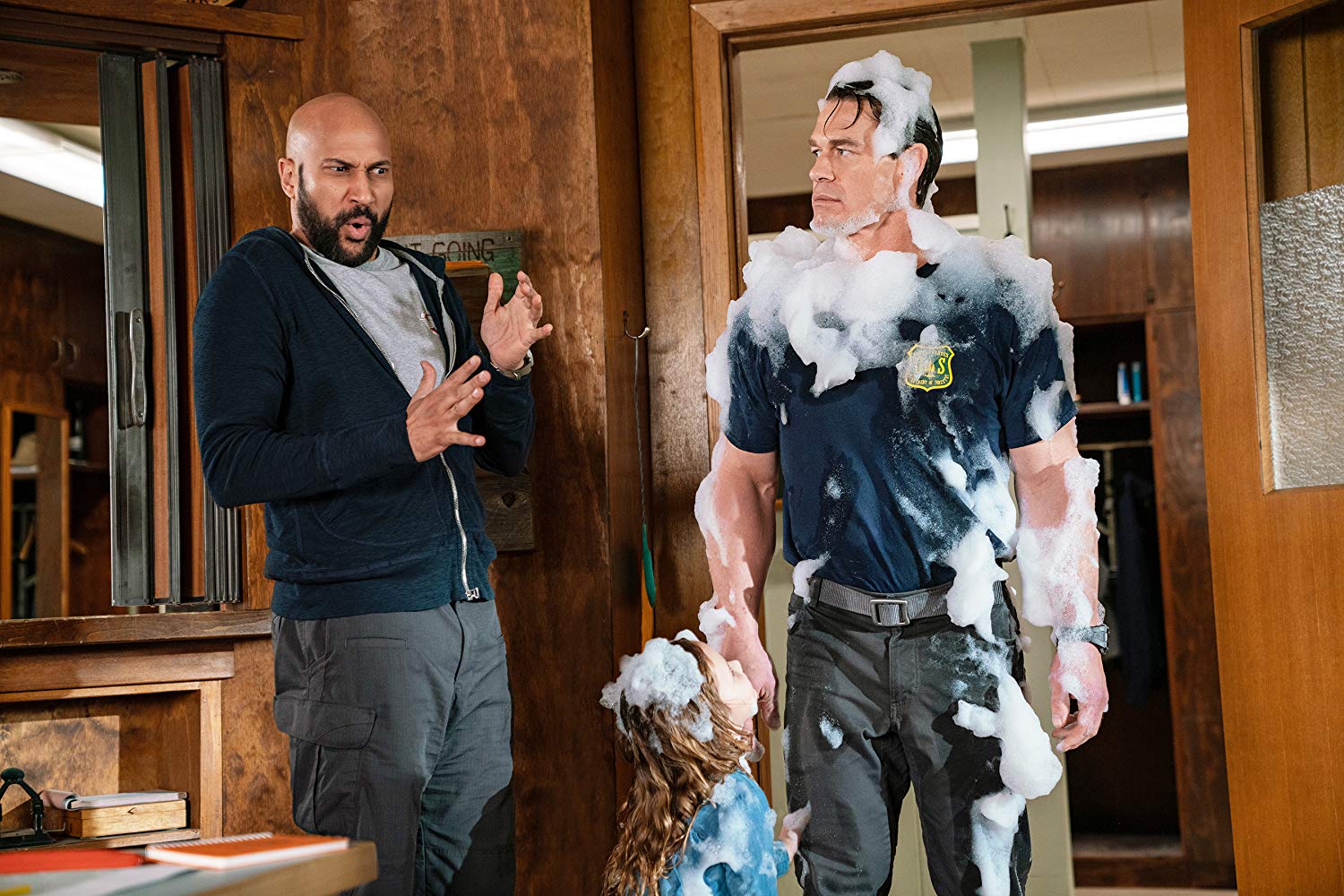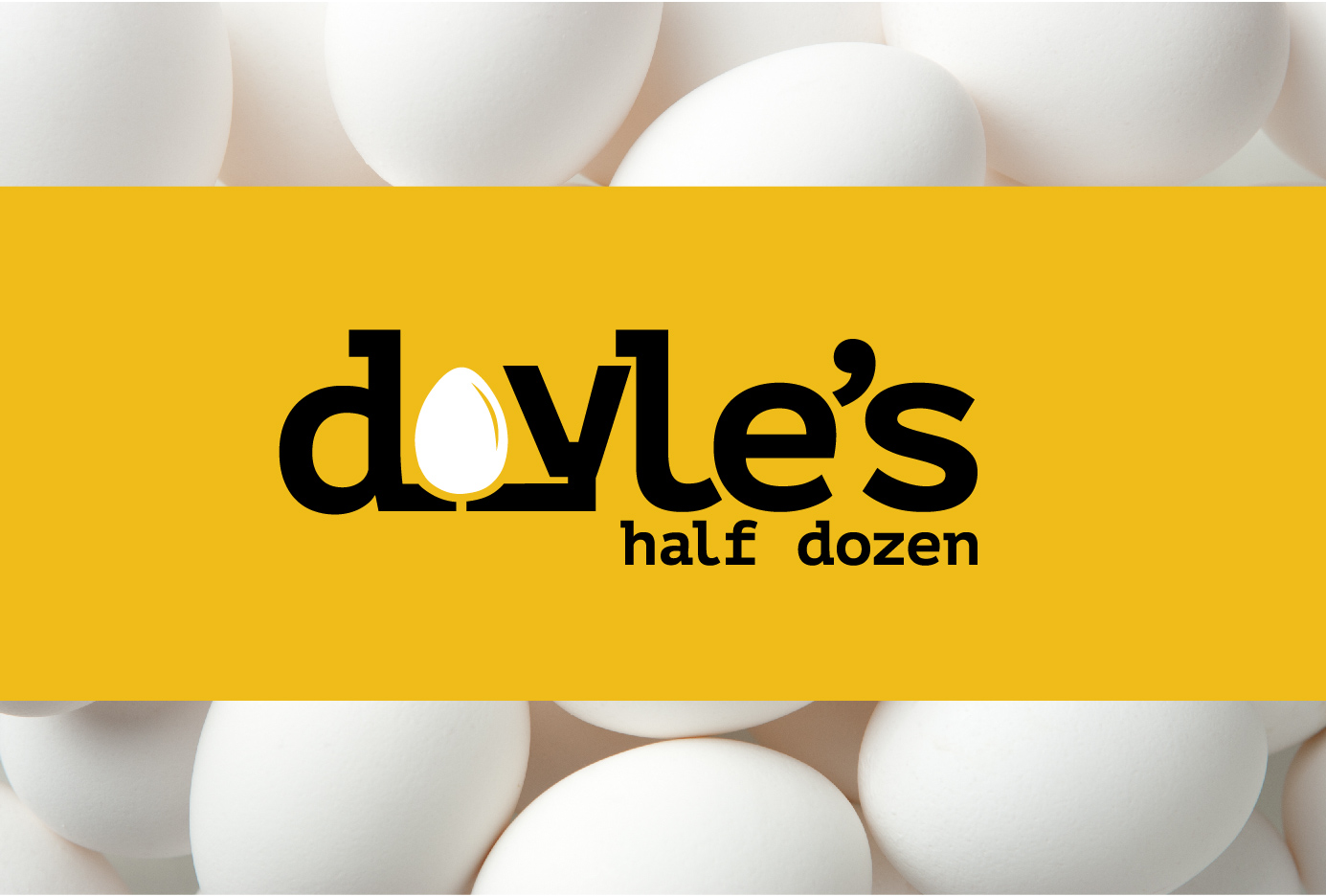
by Michael Foust | Nov 22, 2019
The Disney musical ‘Frozen 2’opens this weekend, continuing the story of a magical queen who has the power to create ice.
Elsa is the young magical queen of a peaceful kingdom,
Arendelle, where no one is lacking and where everyone seemingly is happy.
It’s such a perfect kingdom, in fact, that few people care
to venture far outside its borders.
Elsa, though, is no ordinary person. She can create an ice
palace with a simple twist of her hands. She can start a snowstorm with a snap
of a finger. She can repel an army while sitting down. She has powers that her
sister, Anna, never had.
Not surprisingly, Elsa begins to wonder: Why was she born
with these powers?
Then she remembers a story her father told about an
enchanted forest to the north protected by the spirits of air, fire, water and
earth. Unfortunately, though, a mysterious mist now covers that forest,
preventing anyone from getting in—or out.
But now Elsa is hearing a siren’s voice from the forest. It
calls to her during the evening. It wakes her up at night. Perhaps—just perhaps—this voice holds a clue to
her past. Then again, maybe that voice is setting a trap to harm her.
The Disney musical Frozen
2 (PG) opens this weekend, starring Idina Menzel (Ralph Breaks the Internet) as Elsa, Kristen Bell (The Good Place) as Anna, Josh Gad (Beauty and the Beast, 2017) as Olaf the
snowman, and Jonathan Groff (The
Conspirator) as Kristoff. All four voices were in 2013’s Frozen.
In Frozen 2, Elsa
tries communicating with the siren but accidentally wakes the forest’s spirits—sparking
a series of natural disasters in Arendelle that force the citizens to evacuate.
Elsa then joins Anna, Kristoff and Olaf in a journey to the forest in hopes of
reversing the damage to Arendelle—and perhaps finding answers for Elsa.
Frozen 2 includes the same type of magic in
the first film—a topic that divided Christian families in 2013—and introduces
animism, too. (Details below.)
In addition, Frozen 2
simply doesn’t have the, well, magic
of the first film. The plot isn’t as fun and simple. The music is good, but not
as memorable.
Even so, it does have plenty of laughs and emotion-laden
moments—just like its predecessor.
Warning:
minor/moderate spoilers!
(Scale key:
none, minimal, moderate, extreme)
Violence/Disturbing
Minimal. We see a flashback to a battle with swords. (It’s
bloodless.) Characters run away from a fire (it’s really a “fire spirit”) in
the forest. “Earth Giants”—rock-like monsters bigger than hills—roam through
the woods at night. Later, during the daytime, Anna and Olaf canoe down a river
past the Earth Giants. Elsa and Anna get separated. It’s learned that one of
their relatives killed someone.
Sexuality/Sensuality/Nudity
Minimal. The Kristoff-Anna romance includes a couple of
short kisses on the lips. Olaf jokes that he finds clothes “restricting.”
Coarse
Language
None. (Although we do hear a “butts” and an unfinished “what
the ….”)
Other
Positive Elements
The sibling love between Elsa and Anna can be a model for
movie-going brothers and sisters.
Other Stuff
You Might Want To Know
We see a flashback to Elsa making ice sculptures as a young
girl. Trolls come out of the forest; they say of Elsa’s powers: “We must pray
they are enough” to save the kingdom.
Life Lessons
Life is all
about change: But
as Anna and Olaf learn, some things are priceless and even permanent.
Everyone
needs encouraged: Elsa
has constant doubts, but Anna encourages her: “When will you start seeing
yourself like I see you?”
Self-sacrifice
is a virtue: Both
Elsa and Anna put their lives on the line for the betterment of each other and
the kingdom.
Wrongs need
to be righted: It’s
at the heart of the plot. Still, we must ask: Is there a statute of limitations
on such a belief?
Worldview/Application
Frozen 2 will divide Christian families.
Some will see it as innocent fun that even can be used to educate children
about unbiblical worldviews. Others will point to the film’s animism and plot
and choose to sit this one out.
More than likely, families who enjoyed Frozen, Moana and Coco will
enjoy Frozen 2.
For parents who want to explore the worldview, here’s what
you need to know about the movie’s animism: We meet a heroic people of the
forest who “only trust” nature. We hear that water is a living organism that
has a “memory.” We learn that the spirits of air, fire, water and earth are the
“most powerful” spirits on the planet. We also learn of a “fifth” spirit that
is a bridge between people “and the magic of nature.” Additionally, Elsa
mentions how she’s seen her “power grow.”
The movie, like its predecessor, gives us a good example of
sibling love. It also introduces a major ethical question: Does every “wrong”
need to be “righted”?
Sponsors
Ziploc, Google Home, JC Penney, Nature’s Own, Kellogg’s,
General Mills, Enterprise, Juicy Juice, McDonald’s, Icebreakers and Glade.
Discussion
Questions
1. What can Frozen 2
teach us about the relationship between siblings?
2. If you could explore deep into your past and uncover
family secrets, would you?
3. Should every “wrong” in history be “righted”? Are there
limits?
4. Name three positive character traits of Elsa—and then of
Anna.
Entertainment rating: 3 out of 5
stars. Family-friendly rating: 4 out
of 5 stars.
Frozen 2 is rated PG for action/peril and some thematic elements.
Photo credit: Disney

by Michael Foust | Nov 22, 2019
‘Playing with Fire’is a slapstick comedy that most children (and even parents) will love.
Jake Carson is a straight-laced superintendent of a group of
smokejumpers—elite firefighters who parachute into wildfires to rescue the
stranded and save houses from destruction.
He’s never met a joke he thought was funny. He’s also never
met a child he thought was cute.
For the single Carson, the meaning of life is smokejumping
and climbing the career ladder. Dating is a waste of time. So are
children.
But then Carson and his crew rescue three kids from a cabin
in the middle of the forest.
Their parents are away for the night, which means they’ll
have to eat dinner and sleep back at the fire station.
Carson quickly sets the ground rules: “This depot is not a
playground.”
Unfortunately for Carson, these kids aren’t the
sit-down-and-be-quiet type. One is an energetic little girl. The other is a
curious get-into-everything boy. And the third is a wise-cracking
teenager.
Can Carson survive the night? Or will these three children
teach him how to laugh—and perhaps even how to love?
Now in theaters, the children’s comedy Playing with Fire (PG) stars pro wrestler John Cena (Ferdinand) as Carson; Keegan-Michael Key (The Lion King, 2019) as Mark, a smokejumper; John Leguizamo (Ice Age series) as Rodrigo, another smokejumper; and Judy Greer (Ant-Man) as Carson’s romantic interest, Amy Hicks.
Playing with
Fire is
a slapstick comedy film in the same genre as Home Alone and Peter Rabbit—but
with far less violence. And unlike Home
Alone, it contains no coarse language. Most kids will love it.
Thankfully, it’s also a movie that outperforms its trailer.
It contains plenty of laughs for mom and dad. Even better, it has a
family-centric plot—and a great foster care angle.
Key and Rodrigo are the funniest, but Cena provides a few
chuckles, too.
Along the way, moviegoers learn about smokejumpers. (Such
as: Did you know there are only about 330 of them in the U.S.?)
Warning:
minor/moderate spoilers!
(Scale key:
none, minimal, moderate, extreme)
Violence/Disturbing
Minimal. Children are trapped in a cabin that’s on fire.
(They’re quickly rescued.) A laughing toddler grabs a nail gun and starts
shooting it at a man. (It’s played for laughs.) An automobile, driven by a teen
girl, nearly falls off the side of a cliff. (She and the passengers are
rescued.)
Sexuality/Sensuality/Nudity
Minimal. A married woman jokes about Carson being
attractive. (“My husband sells insurance,” she says. “Take me with you.”) The
muscular Carson (Cena) is seen two or three times without his shirt. (He
quickly puts a shirt on each time.) A man is called a “stud.” The children
arrange for Carson and Hicks to have a date. (The movie ends with a kiss and
them marrying.)
Coarse
Language
None.
Other
Positive Elements
Even though the film is a comedy, we see the heroics of
smokejumpers on display.
Other Stuff
You Might Want To Know
We see a bottle of alcohol. A few of the men drink the
alcohol in small kiddie cups. (It becomes a running joke.) But they don’t
become drunk. We learn that some of the characters (including Carson) lost
their parents at a young age. We see a wine bottle emoji.
Life Lessons
Work isn’t
the meaning of life: At one point, Carson asks, rhetorically, “Without this job,
who am I?” Eventually, he learns that friends and family are more important.
The world
needs first responders: As long as we’re building civilizations near forests, we
need heroes like Carson and his men.
Children are
a blessing: It
takes a while, but Cena finally discovers this.
Worldview/Application
Playing with
Fire
was produced in partnership with Nickelodeon Movies—a company known more for
goofiness than emotional-laden stories.
This film, though, hits the bullseye on a few key messages.
Like the priority of family. And the blessings of childrearing. And the
importance of a mom and a dad.
It’s not a classic like Home
Alone, but thanks to a family-friendly script—it’s clean enough for all of
my young children—it may be worth a trip to the theater.
Final
Verdict
Most critics are panning this film, but I suspect they
didn’t watch it with a kid. Maybe they’re just like Carson—and need to loosen
up.
The humor is truly funny, and its stays in appropriate
territory. I enjoyed it.
Discussion
Questions
1. Do you know of any first responders who deserve your
prayer and thanks?
2. What is the film’s message about children? About foster
care?
3. Did Carson have the wrong view of life and work? Why or
why not?
4. What caused Carson to change his mind about the children?
Entertainment rating: 4 out of 5
stars. Family-friendly rating: 4.5
out of 5 stars.
Playing With
Fire is rated PG for rude humor, some suggestive material and mild peril.

by Brian Hobbs | Nov 21, 2019
As a social conservative who frequently dines at
Chick-Fil-A, the news that the beloved fast-food restaurant has changed its charitable
giving strategy away from traditional Christian groups hit me hard. In fact,
the news, to borrow a phrase, was not my pleasure.
From Eric Erickson to Russell Moore to others, there is
no shortage of interesting “hot takes” on this hot button issue you can find. While
personally saddened upon hearing the news, I began to observe some eerily familiar
online arguments in this latest “food fight.”
In fact, I have observed a pattern of personalities on
social media that seem to rise up during any given controversy. Who am I
talking about?
The Agitators
These are the people who enjoy stirring up strife. In our
social media age that rewards spats and disagreements, these folks are truly at
home. If they are not verbally sparring with someone online, their day is not
complete. For Christians, this should not be our posture.
The Perpetually
Outraged
These are people who seem to fight a new outrage every
week. This week, it’s Chick-Fil-A. Last week, it was another issue. Next week,
it will be another. While we can and should be outraged at injustice and
compromise in the world, Christians must learn how to avoid being sucked into what’s
been called the “perpetual outrage machine.”
The Commenters
These folks have something to say about everything. Whether
it’s about war in Syria, profession sports, laws debated in Congress, new TV
programs or just someone’s personal news, these people seem to provide “expert”
comments on everything. While Christians can and should be informed on a wide
array of topics, it does not mean we need to comment on everything.
The
Conciliators
“Can’t we all just get along?” is a familiar refrain.
These people perceive the growing strife and try to heal divides. While their
peacemaking efforts are noble, far too often these folks get steamrolled in any
conversation, especially online. While we need more people trying to bring
peace, Christians also can heed the proverb that warns us from grabbing a dog
by the ears (Prov. 26:17) and inserting ourselves into every strife that comes
along.
The Disheartened
All of the back-and-forth wears people out. It seems
hardly anyone is persuading anyone any more. This lack of civil discourse leads
to people giving up, to becoming disheartened. Many of these folks have either
faded away from social media conversations, or quit social media altogether.
At various times, I myself have fallen into each of these
categories, whether talking about important news like Chick-Fil-A or other
topics. A personality type I am aiming toward becoming is an Ambassador for
Christ. That is to say, someone who represents Him well. To that end, all Christians
ought to conduct ourselves in a manner worthy of our calling; in a way that honors
Him and sets us apart in a culture gone crazy with verbal “food fights.”
“Let your conversation be always full
of grace, seasoned with salt, so that you may know how to answer everyone” (Col. 4:6).

by Chris Doyle | Nov 15, 2019
Greetings!
I have gone back and forth on what this week’s DHD should
discuss.
There’s a lot of current issues of which I could give
commentary. I’ve also read some great articles, thought-provoking pieces that I
would love to share.
Lastly, I participated in an impactful two-day event earlier this week—the Annual Meeting of Oklahoma Baptists, which included an excellent pastor’s conference and a moving, crowd-drawing Sending Celebration of international missionaries—and I could give a great report on all that occurred.
Instead of delving into all of this blog fodder, I decided to break down a powerful interview that Jacksonville Jaguars quarterback Nick Foles gave.
Even while penalties and punishments are being reported from the Miles Garrett incident, I will shed some positive light, even the Gospel light, through another NFL player who is about to return to the gridiron this Sunday after suffering a collarbone injury during the first week of the season.
Check out what Nick Foles said after a reporter asked him about his Christian faith:
1. ‘I’m going to
glorify You in every action, good or bad.’
Nick shares his version of “If we win we praise Him, and if
we lose we praise Him,” the phrase that was made famous in the movie Facing the Giants.
2. ‘I can still have
joy in injury’
This is a key comment because Nick knew it would not be easy
for people to understand. He even followed up with admitting that it sounds
crazy, but the only people who can get what he means are those who have Jesus
in their lives.
3. ‘I didn’t need
that trophy to define who I was’
This is another puzzling statement. He talked about winning
the Super Bowl when he played for the Philadelphia Eagles. This is the ultimate
moment of success for any professional football player, and Nick downplays it.
He even gives a plea to that player who doesn’t have Jesus in his life who is
pursuing similar success and can’t find contentment when he lays down at night.
4. ‘My purpose isn’t football; it’s impacting people’
Many believe that sharing the Gospel is for people in
full-time ministry. With this comment, Nick squelches that concept. All
Christians are giving the charge to share the Gospel throughout the world,
regardless of our occupation. I was encouraged to hear Nick say that the locker
room is his ministry, even while he was injured.
5. ‘I don’t believe in the prosperity gospel’
Whoa Nick! Now he’s stepping on some toes here! And I love it. Nick shared more truth about the Bible in this small segment than what many televangelists preach. The Bible does speak about trials that help you grow in your faith (James 1:2-3).
6. Going against
Frank Reich
I’m glad Nick mentioned Frank Reich, the head coach of the
Indianapolis Colts. Frank also has a great testimony, and Sarah Eekhoff Zylstra
shared his story how he once was a seminary
president before becoming an NFL head coach.
Take heart, my friends! God is still moving today, even in
the NFL.

by Michael Foust | Nov 15, 2019
The film ‘A Beautiful Day in the Neighborhood’ opens next week, telling the story of a journalist whose life is changed after meeting Mister Rogers.
Lloyd Vogel is a tenacious reporter for Esquire who always
tackles the big stories—and if there’s dirt to be found, he uncovers it.
He writes about the crooked politicians and the lying
businessmen. He finds out what people are really
like when they’re not in the public eye.
In other words, he writes about “hard” news. And puff
pieces? Those are for other reporters.
But then Vogel is given the task of writing a feature on
Fred Rogers—the kid-friendly television host who, seemingly, is always kind.
Vogel is determined to uncover the real Mister Rogers.
“I’m supposed to go easy on this guy because he plays with
puppets?” he rhetorically asks his editor.
Surely—Vogel thinks—Mister Rogers isn’t always kind.
“Please,” his wife begs, “don’t ruin my childhood.”
The film A Beautiful
Day in the Neighborhood (PG) opens next week, starring Tom Hanks (Toy Story series, Bridge of Spies) as Rogers, Matthew Rhys (The Post) as Vogel, and Susan Kelechi Watson (This Is Us) as Vogel’s wife, Andrea.
The movie is based on a true story about Esquire journalist Tom Junod, who was
assigned a story on Rogers that eventually landed on the cover of the magazine.
In A Beautiful Day in
the Neighborhood, Vogel is estranged from his father and battling feelings
of rejection, hatred and unforgiveness when he interviews Rogers. Soon, though,
it is Rogers who is asking Vogel the questions—and it is the hard-hitting
journalist who is learning about kindness and forgiveness, and being changed
for the better.
It’s among the most uplifting and moving films in recent
years and one of the best ones, too. Tom Hanks delivers an Oscar-worthy
performance. Rhys and Watson are impressive. The film masterfully recreates the
look and feel of Mister Rogers
Neighborhood.
A Beautiful
Day in the Neighborhood isn’t a faith-based film in the vein of Overcomer or I Can Only Imagine, even though it makes clear that Fred Rogers was
driven by his Christian faith. We see him kneeling beside his bed and praying
for specific people, by name. (He was an ordained minister who viewed his TV
show as a ministry.) His wife says he “reads Scripture.” Of course, we also see
him exhibiting the fruit of the Spirit, on andoff camera.
Warning:
minor/moderate spoilers!
(Scale key:
none, minimal, moderate, extreme)
Violence/Disturbing
Minimum. We see a fight at a wedding. We watch someone have
a heart attack and later die.
Sexuality/Sensuality/Nudity
Minimum. We hear a discussion about someone “sleeping
around.” A couple shares one or two brief kisses. A character exhibits
cleavage.
Coarse
Language
Minimum. H– (4), OMG (2) and d–n (1). (None of the coarse language is spoken by Mister Rogers.)
Other Stuff
You Might Want To Know
Two characters share a drink of alcohol. (Neither is Mister
Rogers.)
Life Lessons
Kindness can
change the world: Mister
Rogers occasionally was mocked, but as the movie demonstrates, his lessons on
kindness and compassion resonated with multiple generations of people of every
race.
Forgiveness
shouldn’t wait: Sickness
and death have a way of forcing people to forgive and reconcile. God, though,
doesn’t want us to wait.
Fatherhood
is priceless: Lloyd
wants to be a better father to his child than his father was to him.
Life is a
vapor: Lloyd’s
father discovers what’s most important in life—but doesn’t do so until he’s at
the tail end of his life. It’s “not fair,” he says.
Worldview/Application
A Beautiful
Day in the Neighborhood is the rare mainstream movie that promotes dozens of
positive messages: kindness, compassion, forgiveness, reconciliation and the
importance of family, among them.
All of these, though, are grounded in Scripture. Mister
Rogers was an ordained Presbyterian minister who viewed his television show as
his ministry. Yet he also treated individual people in his life as if the
camera was still rolling.
He had a child-like wonder about the world that all of us
should learn. Further, he was void of scandals in a world that was increasingly
scandal-plagued.
In other words, he was the same person in private that he was
in public. He wasn’t perfect—as his wife says in the movie—but he exhibited
Christ’s love for others in a unique and rare way.
In the war-torn, defiant world of the 1960s and 70s, he was
a breath of fresh air. Today’s society could learn a lot from Mister Rogers.
Discussion
Questions
1. Why do you think Mister Rogers’ TV show was so popular?
2. What lessons can we learn from Mister Rogers’ life?
3. Do you think kindness, compassion and love can change the
world? Explain your answer.
4. Why is forgiveness so hard? Is there anyone you need to
forgive?
5. What lessons can we learn about life from Lloyd’s
father?
Entertainment rating: 5 out of 5
stars. Family-friendly rating: 4 out
of 5 stars.
Rated PG for
some strong thematic material, a brief fight, and some mild language.

by Chris Doyle | Nov 8, 2019
Greetings!
Thank you for reading this week’s edition of Doyle’s Half Dozen. Here’s six timely topics for you to consider.
1. Berlin Wall’s been down 30 years
I was in my junior year of college when the Berlin Wall came crumbling down. It felt like being in a vacuum while I was in college. I did not have as much access to news during those years, but it seemed odd at the time that West Germany and East Germany would reunite after 40 years being separated.
Now, it’s been 30 years since the
Wall came down, and the oddity seems to be in reverse. We can’t imagine Germany
being divided.
The International Mission Board
offers a great excerpt from an article written in 1990, giving the perspective
of mission work being done in Berlin soon after the teardown of the Wall.
I hope you will check out “The Berlin
Wall, Thirty Years Later.”
2. Stetzer on Crist
John Crist has been on the rise as
a Christian comedian. If you don’t recognize his name, it’s likely you have
seen one or few of his videos shared on social media.
News broke this week that Crist
has been accused of sexual misconduct and is cancelling his current concert
tour, as well as future performances.
Ed Stetzer comes through once again to give proper perspective. He always communicates objectively when sharing his views when controversy occurs among Christians and specifically among Southern Baptists. His article “John Crist, Failure and Warnings to Heed for Christian Leaders” is an excellent read.
3. Trump impeachment status
I’ve steered clear of the mess
involving President Trump and his well-known communications with Ukraine and
how it has turned into a major mess in Congress.
One of the better articles I have
read about the current impeachment inquiry is from Andrew McCarthy, “Trump
Impeachment Inquiry is Unpredictable.”
McCarthy, David French and Albert Mohler are three people whom I find to be the most accurate in analyzing this impeachment process. All three are not strong Trump supporters, but they each have concluded that the President handled the Ukraine episode poorly but not in a fashion deserving impeachment.
A friend on Facebook shared a
great comment from French who was ironically referencing McCarthy when
commenting:
“It
was inappropriate for the president to point the Ukrainians specifically and
explicitly at the Bidens. A more polished president would simply have said, ‘We
want you to root out corruption, no matter how high up it goes, even in our own
government’—the Ukrainians would have gotten the point and there would be
nothing to criticize. Trump went about it crudely. Commendable? Of course not.
A valid reason to vote against him in 2020? Surely. But it’s not impeachable.”
4. Thunder remembers
I
worked the Oklahoma City Thunder-Orlando Magic game on Tuesday, Nov. 5, and the
pregame was more resonating than the actual game (Thunder won, though, so that’s
a great thing).
Before tip-off, the Thunder recognized the family members of the 168 people who died in the bombing of the Murrah Building in 1995. Each family member received a jersey in the likeness of the ones that will be worn later this year. The jerseys commemorate the Bombing Memorial.
Here’s a video of the experience, which I think is an awesome flick.
5. Midway movie and Veterans’ Day
Veterans’ Day is next Monday, Nov.
11. Many will observe this day, as well as during this weekend, as an
opportunity to show appreciation for those who served in the military and
especially those who sacrificed their lives during their military service.
One way you could prepare yourself
for Veterans’ Day is to go see the new release Midway, which debuts in theaters this weekend. Check out Michael
Foust’s review of the film here.
6. Come to Annual Meeting!
Finally, here’s my last appeal to
you to come to next week’s Annual Meeting of Oklahoma Baptists. It will be at
Quail Springs Baptist Church in Oklahoma City, Nov. 11-12. There is so much
involved during these two days, and I hope you can participate in all of it.
Two specific meetings I would
encourage you to attend are the opening session of the Annual Meeting at 6:30
p.m. on Monday, Nov. 11, and the IMB Sending Celebration at 6:30 p.m. on
Tuesday, Nov. 12. Both of these events will be monumental, as the opening
session will be a time Oklahoma Baptist leaders present a new charge and focus
of how we intend to operate and serve collectively as Oklahoma Baptists across
the state.
The IMB Sending Celebration also
is a “can’t miss” experience, as it will be a demonstration of what we do as
Southern Baptists of both “sending and going” in the sharing of the Gospel
throughout the world.
You can find out more about the
Annual Meeting here.




